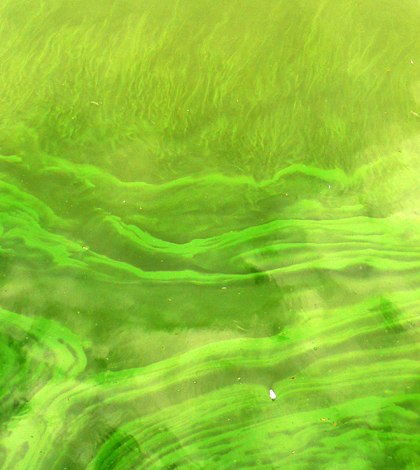Rising CO2 likely shifting ocean’s bacterial diversity

Image: Bloom of cyanobacteria (Credit: Lamiot, Wikimedia Commons)
University of Southern California researchers have led a new study that shows that elevated atmospheric carbon dioxide levels could impact the bacteria that serve as the base of the oceans’ food chain, according to a release from the university.
Researchers studied samples from the university’s culture library that houses various strains and species of organisms to see how different groups of nitrogen-fixing cyanobacteria react to changes in atmospheric carbon dioxide levels. These nitrogen-fixing bacteria convert nitrogen gas into a form able to be used by ocean organisms, which is essential for their survival.
The study showed that elevated carbon dioxide levels are changing the composition of marine bacteria by making some strains more abundant while killing off others. The shift in bacteria concentrations could alter the ocean’s food chain and impact marine diversity.
Image: Bloom of cyanobacteria (Credit: Lamiot, Wikimedia Commons)




0 comments